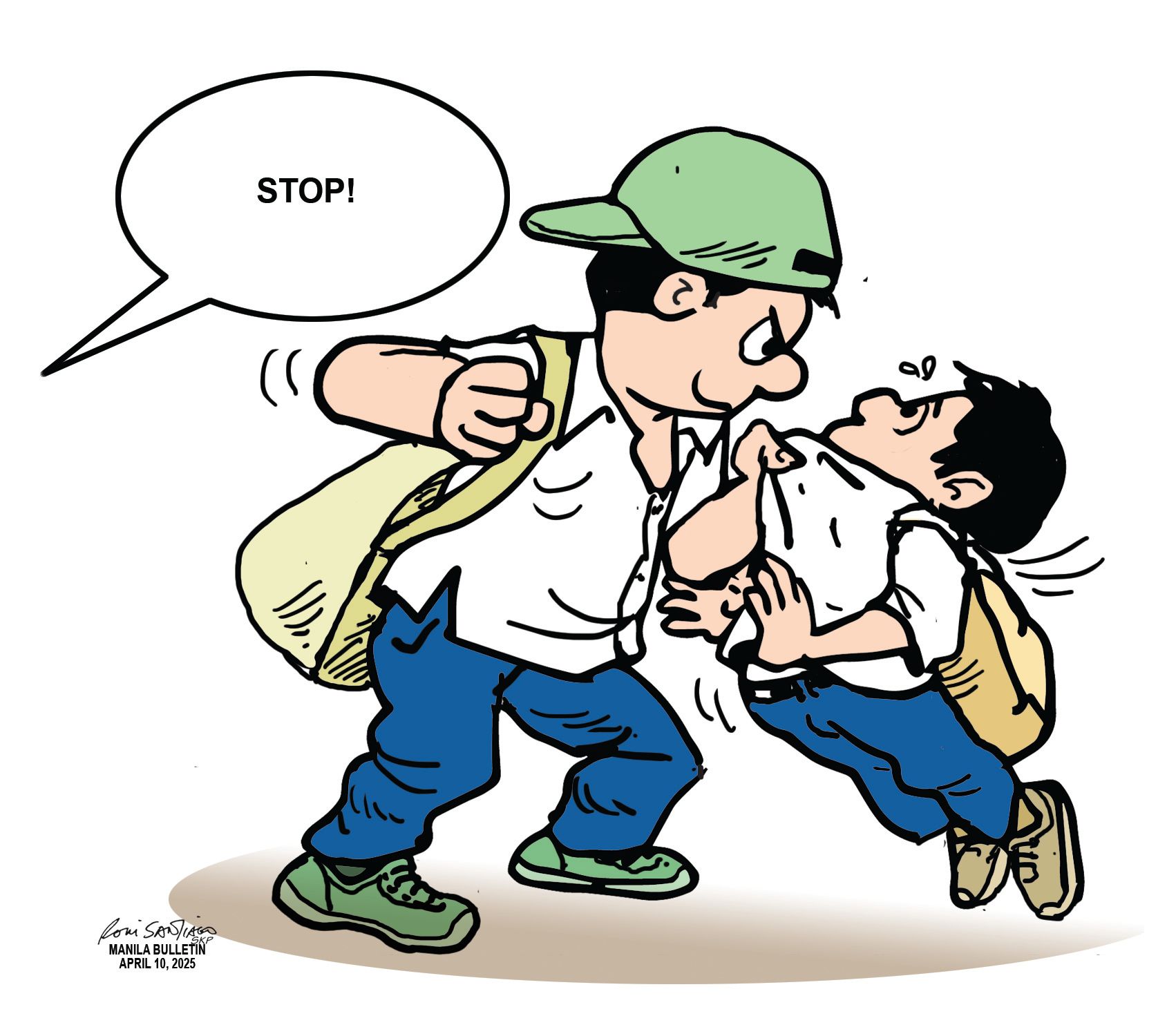
Bullying remains a deeply rooted and growing problem in our schools. From name-calling and exclusion to physical violence and cyberbullying, many students—especially those perceived as different—suffer in silence.
Despite laws and policies in place, bullying continues to thrive, often overlooked or normalized by peers, teachers, and even parents. The persistence of this problem demands not only stronger enforcement of laws but also systemic mental health support and a cultural shift that prioritizes a safe learning environment.
According to a 2019 report by the Program for International Student Assessment (PISA), Filipino students reported one of the highest incidences of bullying among countries surveyed. Around 65 percent of students said they were bullied at least a few times a month, with 40 percent being bullied once a week or more. The PISA 2022 reports that one out three Filipino students are being bullied in schools.
Recent incidents have reignited concern about this problem. Early this month, two alarming cases were in the news: a viral video from Bagong Silangan High School in Quezon City showed a female student being attacked and ganged up on by her classmates while more than 10 others watched passively. Even more tragic was the incident at Moonwalk National High School in Parañaque, where a quarrel allegedly stemming from bullying ended in the fatal stabbing of a student. These events highlight just how grave the situation has become.
In response, the Teachers’ Dignity Coalition (TDC), led by National Chairperson Benjo Basas, called for the urgent strengthening of mental health programs in schools. “We need urgent and systemic support for our learners,” Basas said, emphasizing that enforcement alone is not enough—there must be genuine care and support for students’ emotional and psychological well-being.
Currently, the Philippines has several laws addressing bullying, including Republic Act No. 10627 or the Anti-Bullying Act of 2013, which mandates all schools to implement anti-bullying policies and procedures. Additionally, laws like the Child Protection Policy, the Anti-Child Abuse Law, and the Cybercrime Prevention Act are in place to protect students.
Under the law, schools are required to establish disciplinary measures, hold educational programs for students and staff, and maintain records of bullying cases. It also requires the Department of Education (DepEd) to monitor compliance and assist schools in implementing anti-bullying policies.
While RA 10627 has raised awareness and compelled schools to put systems in place, enforcement and consistency remain major challenges. Some schools lack the resources or training to implement anti-bullying policies effectively. In many cases, bullying incidents are underreported or resolved informally to avoid stigma or disruption. Victims may be too afraid to speak up, and school administrators may hesitate to act decisively, especially if influential families are involved.
To address the psychological toll of bullying, the TDC urged the DepEd and related agencies to expedite the enforcement of Republic Act No. 12080, or the Basic Education Mental Health and Well-Being Promotion Act. This newly enacted law mandates stronger, more accessible guidance and counseling services in public schools—services that are lacking in underserved areas.
More than laws and policies, what the country needs is a cultural shift within the school system—one that encourages empathy, kindness, and accountability. Parents, teachers, and students must all take part in creating a culture where bullying is not just punished but prevented through education and positive reinforcement.